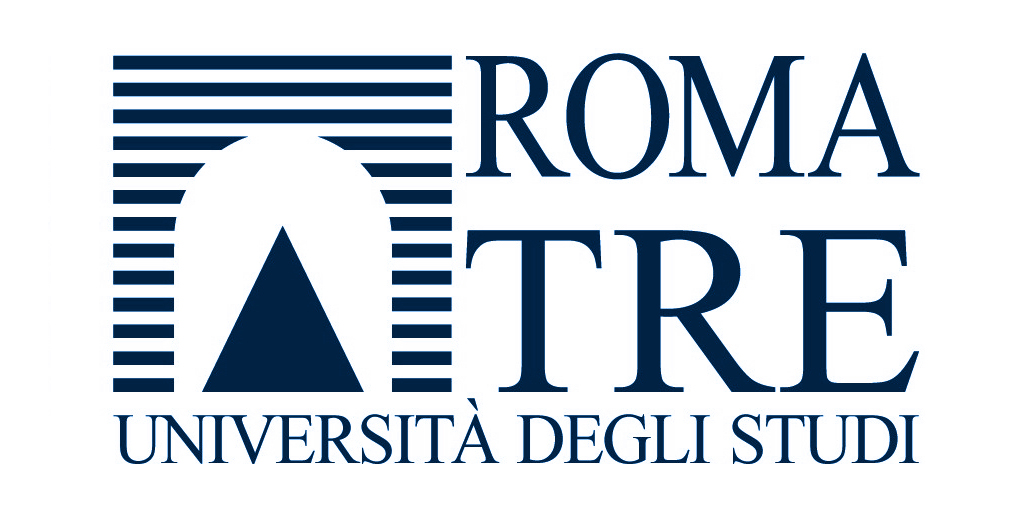The Università degli Studi “Roma Tre” (Roma Tre University) has been established in 1991 and nowadays represents a central point of reference in the academic scenario at both local and national level thanks to its quality teaching and research programmes. The University has 12 Departments
(encompassing Architecture, Economy, Philosophy, Communication and Performing Arts, Law, Engineering, Language, Literature and Foreign Cultures, Physics and Mathematics, Sciences, Educational Sciences, Political Sciences, Business Economy, Liberal Arts), 10 Libraries and 10 Centres and host s about 970 teachers (553 I and II level professors, 353 research assistants and 36 language experts) and nearly 40000 students.
The University has gradually but constantly brought into focus its particular profile of a dynamic and efficient seat of learning, offering a wide-range of graduate and post graduate courses (about 70 degree-courses, 22 PhDs and 80 post-degree courses), focusing on quality of the teaching and the introduction of its students into the labor market. This has led, step by step, to the successful acknowledgement of Roma Tre also at an international level. The university is member of:
- UNICA Network (Universities of the European Capital Cities);
- UNISCAPE (European Network of Universities for the Implementation of the European Landscape Convention);
- EUA (European University Association).
Since its constitution, Roma Tre has granted a great importance to international cooperation, and it has been an active participant in the European Union exchange programs. Particularly, Roma Tre has taken part to the Erasmus program since 1993/1994.
In the academic year 2002/2003, Roma Tre has been awarded the Erasmus University Charter (EUC), thus obtaining the right to participate in the Erasmus Program.
Roma Tre is involved, either as coordinator or as partner, in around 80 International Research projects. All Departments are equipped with computer laboratories and most of the University is a free WI-FI zone. Piazza Telematica is a computer centre with 200 multimedia work-stations, designed to function as a University Internet point; linked to all the laboratories, it is an essential tool for facing the new challenges of research and distance learning. In addition to these IT facilities, students have at their disposal efficient libraries and sports facilities.
Each Department has a set of laboratories provided with relevant scientific equipment and benefits of its own autonomy in planning and managing issues. Each Department has dedicated international projects staff in charge of both the administrative tasks (such as: definition of employment contracts for researchers within projects, travel expenses, financial reporting, support to auditing procedures and accountability rules etc.) and support to R&D projects (such as support to scientists in project
implementation, report drafting, check of timeliness of activities, etc). Staff at Department level are coordinated and supported by the European Projects Office whose executives are skilled in the overall project cycle management, properly instructing the researchers involved in the preparation and implementation of international projects according to the EU requirements and rules.

